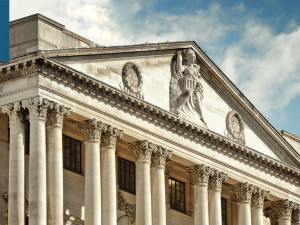
Growth surged in March, but that’s it!
Morning mid-market rates – The majors
6th April: Highlights
- Hikes to be the fastest since 1988
- Trade deficit narrows only slightly
- Eurogroup President sees slowdown this year
Bank of England to slow economy, but not cause recession
Inflation is still rampant, and the likelihood is that the Bank of England will act both judiciously but aggressively to bring it down.
Deputy Bank of England Governor Jon Cunliffe spoke recently of his view that the Bank may be able to moderate its programme of hikes since the rise in inflation hasn’t yet split over into wage demands.
Investors believe that it is only a matter of time before wage demands rise and create a slowdown in the economy.
The current view of Sterling is that the market has been too aggressive in its belief that short-term interest rates will reach 2% this year. The view is that if the economy begins to slow this month, the Bank of England may not be able to go much above 1.50% if at all. This will mean that inflation will remain uncomfortably high well into next year.
That scenario is likely to push the pound down to at least the 1.30 level versus the dollar, although the worsening conditions in the Eurozone will see the pound gain versus the single currency.
Doubling interest rates over a relatively short period would historically be sufficient to calm inflation, but the genie was allowed to escape the bottle and was left unattended for too long.
Expectations are for three more rate hikes over the next three meetings, which take place on May 5th, June 16th and August 4th. The May and August meetings will see the Bank’s projections updated.
In May, it is expected that the forecast for the peak of inflation will be raised from its current 7.25% to well above 8%.
It is now fairly certain that the U.S. Federal Reserve will act significantly more hawkish than the Bank of England, and this is beginning to shape the medium-term future for the pound.
Resistance at 1.3280 is expected to hold, while support sits at 1.3000. Were that to break, a fairly rapid fall to 1.2860 would be expected.
Yesterday, the pound fell to a low of 1.3082 and closed at 1.3094. Versus the single currency, it continues to threaten the 1.20 level and is well-supported at 1.1925.
Considering your next transfer? Log in to compare live quotes today.
Minutes to provide clarity
The country’s deficit in trade in goods and services slipped a little in February, but remained close to a record.
Given what has occurred since February, the data was fairly insignificant, and the market will be eager to see the effect of the conflict in Ukraine. The trade in goods fell from $107.5 billion in January to $106.6 billion in March. However, when adding in the effect of trade in services, the overall number was unchanged.
Following enacting sanctions against Russia, the country is trying to investigate ways in which it can form even closer links with Canada.
Canada had the third-largest oil reserves in the world according to figures from 2016. It holds 10% of the world’s reserves, more than double Russia’s published reserves.
The White House opposes the Keystone Pipeline, citing environmental concerns. It is unlikely that President Biden will change his mind, but he appears to be open to further examination.
Data for Services activity was released yesterday and showed that despite several headwinds, activity remained solid. Rising inflation and supply chain issues have been cited as significant concerns, but activity managed to rise from 56.5 to 58.3.
Fed Vice-Chairperson Lael Brainard commented yesterday that the Fed is prepared to take stronger actions if the outlook and expectation for inflation suggest the need for further action. She went on to say that tighter monetary policy, including both rate hikes and a reduction in the size of the bank’s balance sheet, should return policy to a neutral level.
She went on to say that the Fed will continue to act methodically and the reduction of the balance sheet could start as soon as the May meeting of the FOMC.
Her Colleague Neel Kashkari, the President of the Minneapolis Fed also spoke yesterday and continued his hawkish overtones, calling for rate hikes to be front-loaded.
The dollar index benefited from a fall in risk appetite and the hawkish comments from Fed officials.
It rose to a high of 99.42, its highest level this year, but was unable to gain further traction as traders await the release of the minutes of the most recent FOMC meeting.
Pascal Donahue sees significant slowdown
In fact, it is almost impossible to picture a scenario where several individual members can escape. It is still unlikely that the entire Eurozone will collapse into stagflation, but several members are in grave danger.
A perfect storm of the Pandemic, the conflict in Ukraine and a combination of ECB support and the parlous state of commercial bank’s balance sheets has led to the current situation.
It was incredibly misguided of ECB President Christine Lagarde to speak so forcefully only a week or so about her belief that stagflation would not happen.
Yesterday, The President of the Eurogroup, made up of the Eurozone’s Finance Ministers, spoke of his certainty that the region’s economy would suffer this year.
Following discussion with his colleagues, they came to the conclusion that the region faces grave consequences from the conflict in Ukraine.
One issue not being even considered, at least publicly, is the doomsday issue, an escalation that results in an EU nation or NATO member becoming physically embroiled.
Outside that, the economic fallout is expected to be devastating and will require strong leadership.
Step up Ursula von der Leyen, who is not considered to be up to the task without the support of her mentor, Angela Merkel.
Forcing through the appointment of von der Leyen at the expense of the Bundesbank President, Lens Weidmann’s candidacy to be ECB President may have laid the foundations of where the Union finds itself now.
It is clear that Weidmann would have been far more hawkish than Lagarde and would probably have run into difficulties with Italian Prime Minister Mario Draghi, but having two heavyweights thrashing out the best course of action to fight the fallout from the Pandemic would have been better all round.
The euro is facing a very tough year from now. The economy is suffering and the ECB is going to be forced to both shrink its balance sheet and hike rates to curb inflation.
This is the classic stagflation recipe, and it is the currency that will be an obvious casualty.
Yesterday, the euro fell to a low of 1.0911 and closed at 1.0912. It is now threatening to slow for the year at 1.0806 and there are very few traders who believe that if that level is challenged it has any chance of holding.

About Alan Hill
Alan has been involved in the FX market for more than 25 years and brings a wealth of experience to his content. His knowledge has been gained while trading through some of the most volatile periods of recent history. His commentary relies on an understanding of past events and how they will affect future market performance.”



